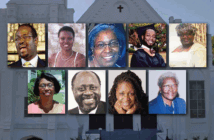Tom Berlin explains why fruitfulness in terms of membership, discipleship, and growth are key measures of leadership effectiveness.
This article was originally published on November 11, 2005.
I grew up in a town surrounded by apple orchards. Orchard workers tended the trees throughout the year. They put spacers in the branches, fertilized, trimmed and sprayed the trees so that every fall the orchard would be laden with fruit.
An orchard worker’s success depends on several things. First, he or she needs a vision of what a healthy tree and a healthy orchard look like. A casual observer might see a new seedling; the orchard worker can see a full grown, vibrant apple tree laden with fruit. That vision guides all their care and attention through the lifespan of those trees. Second, an orchard worker knows that three things are required for a successful outcome: the growth of the tree; the health of the tree; and the tree’s ability to propagate itself and share its goodness with others by producing fruit.
Effective leaders in the church are like those orchard workers in several ways. First, a church leader must be the primary keeper of the vision. We must be able to see what others in the body of Christ cannot see, hope what they cannot hope, and long for what they have no idea can exist. Church leaders must be so connected to God that all our efforts are directed toward the fruition of God’s vision.
Second, like the tender of an orchard, effective church leaders anticipate outcomes in terms of growth, health and fruit. They know one manifestation of the Holy Spirit in the early church was numerical growth and they look at the growth of worship attendance and membership. They also know that numerical growth is meaningless unless it is coupled with the health of Christian discipleship that includes a deeper experience of loving community, and a deeper pursuit of holiness. They count how many adults are in small groups and participate in Christian outreach. They view the stewardship of the church as a function of its discipleship rather than wealth. They also have a feel for the spiritual climate of the church. Effective leaders long for transformation of the church in those areas that evidence Christian discipleship. They know that numbers are not a game, but represent beloved children of God. One thing that limits clergy effectiveness in my denomination is that we are told to measure everything but know we will be held accountable for nothing.
Finally, effective leaders love the satisfaction of ministry fruit. They marvel as believers share their faith with those who do not know the good news. They celebrate as the church ministers to those in need, especially those who are economically poor or those who are spiritually impoverished. Like an orchard workers, laborers in God’s vineyard look forward to a plentiful harvest.
 Related Resources
Related Resources
- Fruitfulness for Others Ken Carter
- Evidence of Fruitfulness Janice Huie
- Fruitful Leadership for a Mission-Shaped Church David McAllister-Wilson
- Bearing Fruit: Ministry with Real Results by Lovett H. Weems Jr. and Tom Berlin






